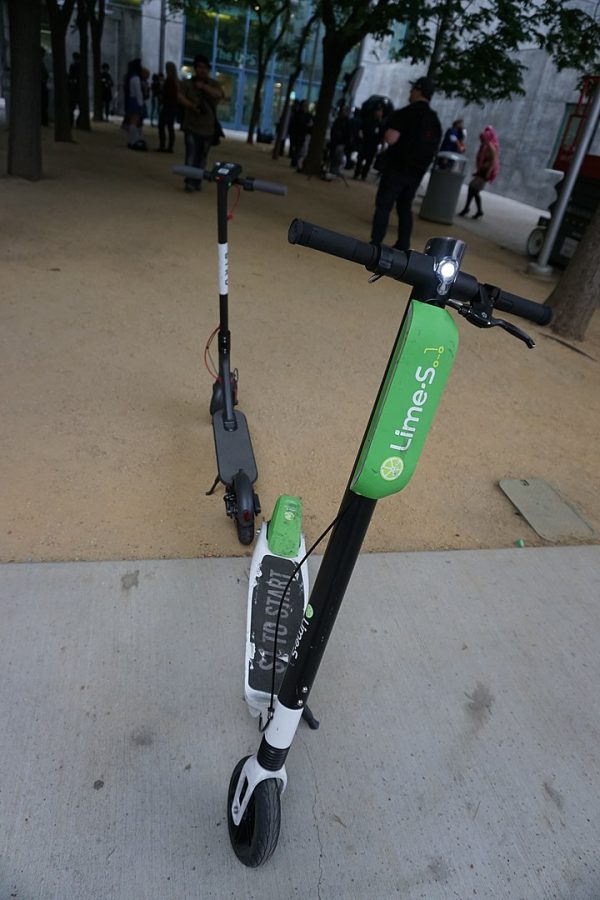Nashville Mayor David Briley followed through on his ultimatum with electric scooter companies and set to begin the process of removing many of them from Nashville’s streets.
In late May, he announced to the seven companies operating the 4,000 scooters within the Metro area that they had one month to propose changes to their operating regulations so as to comply with existing law and safety standards, lest he begin a process to restrict their distribution.
The announcement followed months of dangerous scooter riding and rule-breaking. Nashville sidewalks are flooded with illegally-parked Limes and Birds; the Metro Fire department responds to dozens of scooter-injury calls per month. And recently, one rider was even killed in a crash.
Briley reasoned that because the city couldn’t effectively enforce existing standards and protect all of his constituents, the onus was on the companies to come up with a plan to fix the situation. During this one-month grace period, the companies came to Briley with policy proposals to amend scooter ordinances. They included propositions for added bike lanes to accommodate scooters and even cuts to the number of scooters allowed to operate in Nashville.
Mayor Briley tried to work with these companies to make everyone happy – stricter rules with the same access to Nashville markets.
These offers did not meet Briley’s standards, so he made good on his threat. He has sent to the Metro Council, the city’s legislative body, a policy plan that would largely ban electric scooter operation in Nashville – with the exception of a small batch of scooters and a new process for reentry into the Nashville market. It stands a good chance at passage.
As an avid Lime rider, I understand the outrage. If you love the scooters and hate walking, trading Birds for longer treks is an inconvenience. While your annoyance at the extra ten minutes added to your walk is well-founded, so is Mayor Briley’s action; Mayor Briley tried to work with these companies to make everyone happy – stricter rules with the same access to Nashville markets. In summer 2018, Briley enacted a pilot program allowing for the operation of thousands of scooters under the regulatory purview of vehicle authorization and parking limits. But, as we now know, this just hasn’t worked out. People keep getting hurt and our streets are littered with heaps of plastic.
Mayor Briley is doing his job. When use of a product is associated with injury and death, the government must regulate it in order to protect its people. Take the example of car accidents. In the 1980s, with the impact of drunk driving and overall traffic fatalities on the rise, state governments took action on vehicle safety. Beginning with New York in 1984, states began to enact and enforce seat belt laws. Today, every state except New Hampshire has some law on the books which penalizes drivers and passengers who ride without seat belts. And these laws appear to have had their intended effect: a Journal of Health Economics report found that seat belt laws have increased seat belt use, resulting in a ten percent decrease in serious traffic injuries and deaths. Yes, everyone should wear a seatbelt and in a perfect world everyone would wear one on his/her own. But we live in a world with imperfect, distracted people. Without government intervention, at least in the realm of transportation, we are more likely to put ourselves in danger.
That’s all Mayor Briley’s effort is. It’s not a governmental authority’s overreach into everyday life – it’s an initiative to protect people from an unregulated product. If the Council approves it, our streets will be more walkable and Nashvilleans will be safer. Hopefully, it will be the wake-up call these companies need to get their act together. And if they do, we’ll be able to use their products under a safer regulatory framework.
Max Schulman is a junior in the College of Arts and Science. He can be reached at [email protected].



